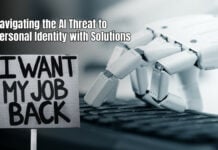
Humans have been optimizing and automating things from the beginning of time, from the invention of the wheel to the industrial revolution. The latest technology to join that list is Artificial Intelligence (AI). As AI advances and its use becomes more widespread, concerns about it taking over certain roles traditionally filled by humans, such as in the workplace, are growing, and Americans are expressing a great deal of reluctance.
Public Opinion on AI’s Role in Hiring and Firing
A recent Pew Research study released by Thursday found that 32% of Americans believe that AI, when used in hiring and evaluating workers, is more likely to do harm than good. Additionally, 40% of respondents think AI can provide benefits to job applicants and employees, such as speeding up the hiring process, reducing human errors, and eliminating potential biases. But an even larger group of 71% of US citizens expressed discomfort with the idea of using AI to decide whether to hire or fire someone.
Survey Respondents Wary of AI’s Use in Surveillance, Resume Screening, and Job Losses
The respondents to the survey also expressed concern about the potential invasion of privacy by AI systems, with individuals from the upper-, middle-, and lower classes worrying that they would be “inappropriately surveilled if AI were used to collect and analyze information.” On top of that, 90% of the respondents were wary of their resumes being screened or evaluated, and 64% believe AI will cause job losses.
Addressing Concerns: Policy, Transparency, and Education
To address these legitimate concerns, key players in the AI industry have suggested a three-pronged approach: policy, transparency, and education. Specific steps, such as the ban on ChatGPT in Italy over issues of data collection and inappropriate interactions, to the European Union‘s call for more transparency and training for workers to help them adjust to a rapidly changing job landscape have been taken. The technology leaders themselves have even called for a pause in the training of more advanced models and this would ensure the safety of AI models before their use becomes widespread.
It’s not all doom and gloom though. The same study found that 67% of the overall population feels optimistic about the potential of AI, and around the world, what was once a niche technology is becoming more and more popular, with 82% of all respondents claiming to have some knowledge about it. The main challenge for the technology industry, governments, and AI developers will be striking a balance between its potential benefits and the potential risks it presents. If done well, AI could present a huge opportunity to improve lives and make things easier.
Emphasis on Trust between Users and Technology Companies in the Age of AI
At the heart of this conversation should be an emphasis on the importance of trust between users and technology companies by providing them with the security they need. As U.S. President Joe Biden said in a meeting with science and technology advisors, technology companies must ensure their products are secure before releasing them to the public. More so than ever, this also applies to AI as even prominent figures in the AI research industry are becoming increasingly aware.
As AI continues to enter more parts of our lives, it’s essential for both governments and companies to create regulations and policies that protect citizens’ rights and information, and guarantee that the tech is used in a safe and secure manner. This is important not just to protect the people utilizing AI, but to make sure the technology is utilized efficiently and optimally. Establishing these safeguard measures, can ensure that AI can truly become a good ‘boss’ and will not take over in a way that will register damage rather than progress. Until then, it’s up to policymakers, companies, and developers to work together to ensure those safety measures are in place.



